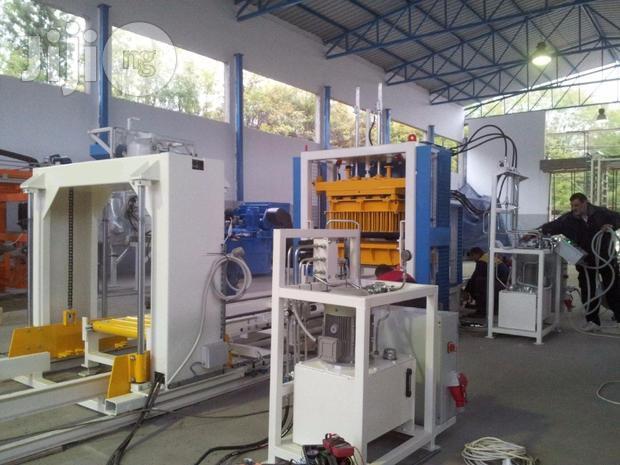- Stakeholders Seek Ban on Manual Block Production
Stakeholders in the construction industry have called for a ban on the use of manually produced blocks for building construction in order to check the menace of structural failures and collapse.
A professor of building at the University of Lagos, Godwin Idoro, in a paper presented at the Building Collapse Prevention Guild’s workshop for block moulders in Lagos, said that to prevent the production of substandard blocks, the combined efforts of all stakeholders, including governments and their Ministries, Departments and Agencies; professional bodies, clients, designers and consultants, contractors, suppliers and block producers was required.
Idoro said, “The use of non-mechanical method of production should be stopped; it is time for all stakeholders to discourage the use of manually produced blocks. There is a need to encourage fabrication and production of better locally produced block moulding machines.
“There should also be adoption of certification of blocks. For this purpose, the Standards Organisation of Nigeria, the Nigerian Building and Road Research Institute, universities, polytechnics and the Nigerian Institute of Building can be empowered to develop conditions, conduct inspections and award their certification, which can be used in design specifications.”
He noted that there should also be periodic renewal of block production certification and development of codes and standards on sandcrete blocks by government agencies, in collaboration with research institutions and professional bodies, as well as regular training of block moulders on the standards.
“Government should make it mandatory for blocks to carry the name of producers, brand name, date of manufacture and expiration like other manufactured products, and the government should have classification of block manufacturers as SMEs and provide financial support to them like other SMEs,” he added.
Idoro also suggested that there should be periodic testing of the properties of blocks by contractors and other users before purchase.
The President, BCPG, Mr. Kunle Awobodu, said the frequent increase in the production cost of blocks in recent times due to the continuous rise in the price of cement and other production variables had encouraged compromise in the quality of blocks.
He said the formation of the National Association of Block Moulders of Nigeria was a necessary step at improving on the quality of blocks, adding that the BCPG, in collaboration with SON, had been supporting the association in observing standards in the production of sandcrete blocks.
Awobodu said that learning from the experience of the Synagogue Church of All Nations’ building that collapsed on September 12, 2014, the BCPG Igando-Ikokun Cell had taken it as a social responsibility to host block moulders across the state to a workshop aimed at reducing sharp practices in the block moulding industry to forestall a building collapse crisis.
He noted, “Most of the blocks that are made today are not properly cured as they are taken to site for use before one to one and a half week minimal period for curing. The major reason for this sharp practice is due to the fact that most block moulders do not have sufficient funds to acquire adequate expanse of land for spreading and stacking of the blocks, and also because of their inability to manufacture the product well ahead of the time for its demand.
“To overcome this shortcoming or impatience, cement manufacturers are forced to produce rapid hardening cement for blocks.
“Undue competition and rivalry have also made some block moulders to sell below production costs for standard blocks, which has, invariably, led to gradual quality reduction in block production. The need to let block moulders form an association in order to facilitate communication and equate realistic prices in view of fluctuating production costs cannot be overemphasized. This will, of course, reduce the level of cheating induced by competition.”
A former Chairman of the Nigerian Institute of Quantity Surveyors, Lagos Chapter, Mr. Tijani Lasisi, who spoke on how to produce high quality sandcrete blocks, said the country was blessed with a lot of cement factories but that there was a need to use the good cement diligently without cutting corners.

 Billionaire Watch3 weeks ago
Billionaire Watch3 weeks ago
 Startups4 weeks ago
Startups4 weeks ago
 News4 weeks ago
News4 weeks ago
 News4 weeks ago
News4 weeks ago
 Bitcoin4 weeks ago
Bitcoin4 weeks ago
 Naira4 weeks ago
Naira4 weeks ago
 Forex3 weeks ago
Forex3 weeks ago
 Treasury Bills4 weeks ago
Treasury Bills4 weeks ago

























